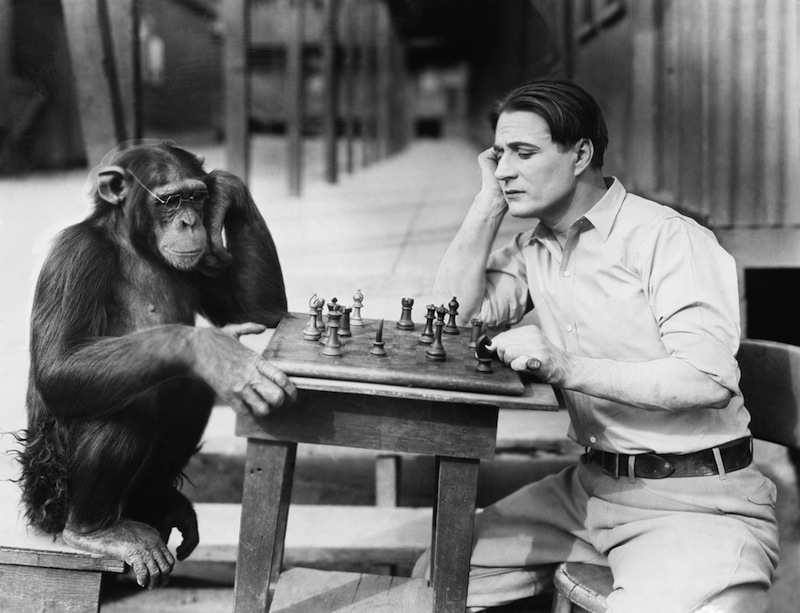Humans Evolved 'Game Face' As Plea for Help, Study Suggests

Get the world’s most fascinating discoveries delivered straight to your inbox.
You are now subscribed
Your newsletter sign-up was successful
Want to add more newsletters?

Delivered Daily
Daily Newsletter
Sign up for the latest discoveries, groundbreaking research and fascinating breakthroughs that impact you and the wider world direct to your inbox.

Once a week
Life's Little Mysteries
Feed your curiosity with an exclusive mystery every week, solved with science and delivered direct to your inbox before it's seen anywhere else.

Once a week
How It Works
Sign up to our free science & technology newsletter for your weekly fix of fascinating articles, quick quizzes, amazing images, and more

Delivered daily
Space.com Newsletter
Breaking space news, the latest updates on rocket launches, skywatching events and more!

Once a month
Watch This Space
Sign up to our monthly entertainment newsletter to keep up with all our coverage of the latest sci-fi and space movies, tv shows, games and books.

Once a week
Night Sky This Week
Discover this week's must-see night sky events, moon phases, and stunning astrophotos. Sign up for our skywatching newsletter and explore the universe with us!
Join the club
Get full access to premium articles, exclusive features and a growing list of member rewards.
Human children, but not chimpanzees, wear their determination on their faces, new research finds.
The study suggests that humans, as the more social and cooperative species, may have evolved to subconsciously signal a request for help using facial expressions.
"The likelihood is, in humans, that someone is going to help you, because we're an inordinately social species," said study researcher Bridget Waller, an evolutionary psychologist at the University of Portsmouth in the United Kingdom.
Faces of determination
Waller and her colleagues performed the same experiment on both human children (32 3-year-olds and 33 6-year-olds) and chimpanzees (ages 7 to 25). The researchers showed the subjects a transparent plastic box. For kids, the box contained a little toy. For chimps, it held a banana.
The researchers showed the child or chimp how to open the box, but then secretly locked it, making the task impossible. As the subjects spent the next two minutes trying to get the box to open, the researchers recorded the facial expressions the kids and chimps made.
The results showed that the longer the children persisted at trying to open the box, the more they displayed a "determination face" — essentially, pressed-together lips and a raised chin, the sort of muscle motion that happens if you stick out your lower lip.
Get the world’s most fascinating discoveries delivered straight to your inbox.
Chimpanzees can and do use these same muscle movements when making an angry face, but their facial expressions were not linked to the time they spent trying to get into the box. They did not show any facial expressions of determination, like pressed-together lips, a raised chin or otherwise. [Image Gallery: Snapshots of Unique Ape Faces]
Evolving expressions
These findings hint at a major difference between people and chimps, humans' closest primate cousin. While both species are social, and chimpanzees show signs of empathy, chimp societies are not nearly as large and complex as the societies humans have built, Waller told Live Science.
"What we think this means is that humans have evolved to demonstrate their frustration or determination or effort — however you want to describe it," she said.
It's not clear whether the determination expression is innate or whether children learn to display it before age three, but the researchers suspect the expression is unconscious. Either way, the difference between chimps and humans may reflect the differing social environments of each species.
The next logical step, Waller said, is to study whether people do, in fact, respond to these determined expressions by spontaneously offering help. She and her colleagues report their findings today (March 4) in the journal Biology Letters.
Follow Stephanie Pappas on Twitter and Google+. Follow us @livescience, Facebook & Google+. Original article on Live Science.

Stephanie Pappas is a contributing writer for Live Science, covering topics ranging from geoscience to archaeology to the human brain and behavior. She was previously a senior writer for Live Science but is now a freelancer based in Denver, Colorado, and regularly contributes to Scientific American and The Monitor, the monthly magazine of the American Psychological Association. Stephanie received a bachelor's degree in psychology from the University of South Carolina and a graduate certificate in science communication from the University of California, Santa Cruz.
 Live Science Plus
Live Science Plus










